I’m guessing that if you went back in time and told Danny Parker that he would be one of the co-architects for such hits as “Stitches” and “Chains” for Shawn Mendes and Nick Jonas, respectively, he would tell you were full shit. After all, he grew up feeling like an outcast within the lush, controlled environment within his suburban Virginia hometown. Parker established himself as mischievous and rebellious while looking to find anything that would allow him to find some self-validation. Discovering music afforded Parker precisely what he had been seeking for so long, which in turn has allowed him to turn it into a successful run as a songwriter.
Assimilating his distinctive mind for structure and his sharpness for writing insightful lyrics, Model Child (Parker’s solo project) debut Dropout is a mind-bending album that showcases Parker’s vision going to untouched terrain. Tracks such as “Strawberry Bowl,” “Animal Noise,” and “The Past is a Pretty Gun” hums with frenetic and a fuzzed pace pushed to the extreme. “Cuckoo” highlights a poppy/80s new wave vibe that also offers up nostalgia for Parker. Going under the moniker Model Child, Parker has the autonomy to where he wants to go, both musically and lyrically.
Your first foray into music was playing the trombone. What was it about playing the instrument appealed to you?
To be honest, I’m pretty sure I remember wanting to play the trumpet (laughs). The day we were picking our instruments, the band director at my elementary school looked at me and said, “Trombone.” So I guess Mr. Fraker decided my fate as a trombonist.
You attended Florida State and VCU for chunks at a time before leaving them. What was it about those schools that ultimately made you feel so unsure about being there?
If you’ve ever been to Florida, you know that you should never go to Florida, hehe. I got into the music school at FSU for trombone and got some money from the school to go, so I was like, “I’m gonna get the fuck out of Virginia and move to a land of palm trees, margaritas, and sunshine.” Little did I know, Tallahassee is essentially a town of conservative values, police corruption, and football, conveniently located near a bunch of muddy swamps. It wasn’t my thing. There was a cool venue on the campus that a bunch of indie bands played at. I saw the Dirty Projectors, We Are Scientists, Do Make Say Think, Cold War Kids, and others there. I did meet some lovely people, but I was shy and a bit of a loner so I decided to leave.
VCU was a lot better. Richmond has a pretty cool art/music scene. There was a little thrift store around the corner from the apartment I lived in and bands would play after hours. I was more interested in partying than going to class. Even through all the debauchery, I was always writing music and took that very seriously. Eventually I was like, “I need to dedicate myself to this.” So I left. Up until then it felt like I was delaying things.
What has living in Los Angeles done for you outside of music? Do you feel like you are someplace where you belong?
LA has so much to offer. I find it interesting when people are like, “LA sucks because of XYZ.” And I’m like, “well yeah, sure, it does, but it’s also great because of ABCDEFG, etc.” There are so many beautiful, interesting people to learn from here. I still wanna live in some other cities when this pandemic is over though and see what else is out there. Even Tallahassee was a learning experience. Sometimes you can learn even more about yourself being in a place where you don’t belong.
Did you have doubts about moving to LA at first?
I think I had a little bit of hesitation, but my parents were very encouraging and I moved out here with a bunch of friends from Virginia so I had a safety net. My friends made it feel like I was right at home.
Being a part of writing singles like “Stitches” from Shawn Mendes and seeing them explode in popularity has to be overwhelming, right?
Kinda yes and kinda no. I’m still able to walk down the street and grab a coffee and no one is going to point me out and say, “Hey! You wrote Bla Bla Bla!” Shawn is no longer able to walk down the street without security! I don’t think I understood how big it was for my career as a songwriter at the time. It was still kind of early on in moving out to LA. I just continued to look in my calendar and go to the location on my phone. Then I would write with the people I was assigned to for that day. I had imposture syndrome for a while and had a lot of anxiety about living up to the expectations. I thought other people placed on me. In the end, you just show up and do your best.
What was the most challenging part for you when you were writing pop songs for musicians?
Anxiety. Looking back, I got thrown into deep water pretty quickly. It was daunting driving around LA, meeting up with strangers every day, and pouring myself out to them. It can be draining. There were plenty of days I left the studio being like, “damn, I suck” (laughs). I got into meditation and that helped me a lot. Staying present is one of the most important aspects of a writing session. You can catch good ideas quicker, and if you’re lucky, you catch a great idea.
When did it become apparent that you needed to go off and do Model Child?
My idea was to move to LA, make connections in the industry and, if I’m lucky, get some cuts and if I’m fortunate, get some hits, then use that as a springboard into being an artist. I was like, “okay, I’ll do this for two years and I’ll be good.” If you get a publishing deal, you’re locked into a contract for an allotted amount of time (sometimes forever) and you have to make back the money back that you hopefully got from the company to live off of while you’re going to sessions and writing songs. I was now a part of a music community, learning a shit ton about writing and the industry, and stuck in a contract.
I started writing for what became Model Child, I’d say, about four years ago. I had a different name for the project and the sound was very different. Sorta electronic heavy, solo Thom York, Aphex Twin, Fever Ray-influenced. I tried that for a little bit, just kinda toying around, but eventually hit on the “band” sound. It felt right so I veered off in that direction. I’m still writing for other artists because I enjoy it and I’m still learning from the people I work with, but Model Child is what I’m mostly focusing on right now.
Was there any hesitation about going and recording on your own, especially after being a songwriter for years for other acts?
There really wasn’t because I had the freedom to do it. I was listening to an interview recently with Bisa Butler, and she was discussing her life and career as an artist. She taught art for years while raising her kids and would quilt whenever she had time. She had much bigger responsibilities in comparison to mine, but she did what she needed to do to make her art and survive. I think there’s this false narrative of being like, “I’m gonna be a painter, so I’m gonna just drop everything and do it.” Sure, that’s great, but maybe sell a few paintings first and start getting your foot in the door before you can’t afford rent and can’t paint at all! Of course, Jean Michel Basquiat crashed at people’s places and focused only on making it as an artist and is one of the most famous artists who ever lived, but that dude’s a fuckin genius. Andy Warhol did the opposite and started as a commercial illustrator and then transitioned into being one of the most successful artists who ever lived. Would he have become that without having the stability of a job and something to fall back on? Who knows. I always knew I wanted to be an artist and had something to fall back on, so it was an easy decision to just go for it.
You are heavily influenced by the grunge movement back in the ‘90s. What was it about that time that spoke to you musically?
There’s a biting honesty and rawness in a band like Nirvana. When I get into a band or musical style, I usually get pretty obsessed until I exhaust myself of it. I grew up in the ’90s and listened to grunge but hadn’t done that deep dive yet. New Years Day 2017, I came across Kurt Cobain’s list of his Top 50 or 100, whatever is, all-time favorite albums. I listened to the first one and continued down the list. I still haven’t listened to all of them, but that was an excellent resource for me. Current pop music is calculated and formulaic 99% of the time. Autotune, meticulously sculpted melodies, a concept reinforced throughout a song…I think I got burned out on that. Grunge is incredibly visceral. It’s muscular and unapologetically in your face. I used pop writing techniques all over Dropout but allowed myself to tap into that Dionysian spirit that grunge has.
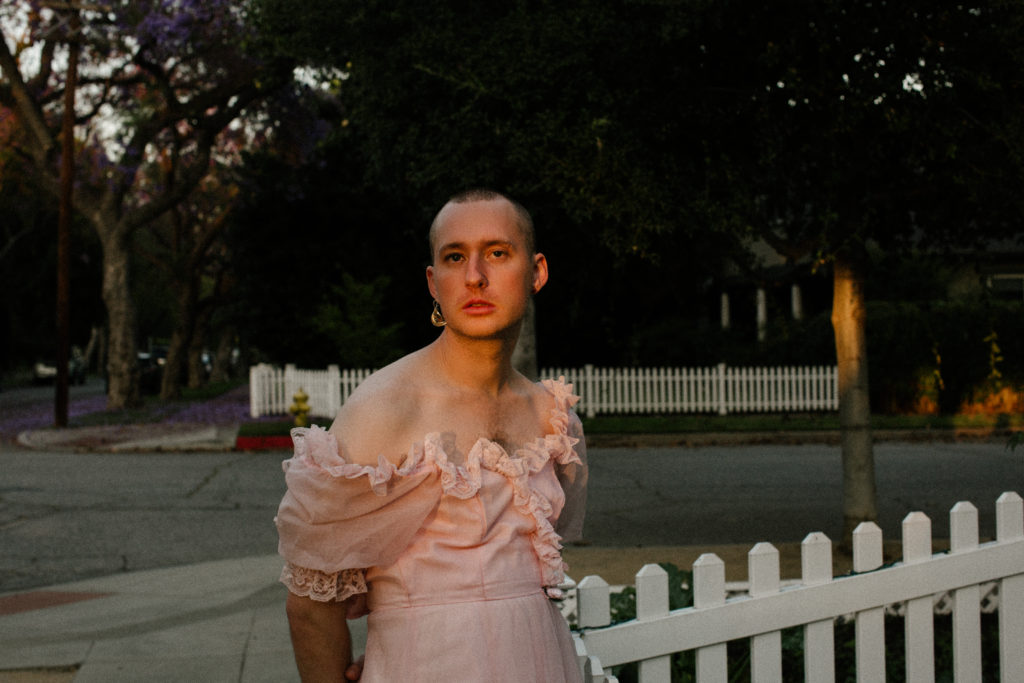
I found it so encouraging to see that you mentioned embracing your sexuality and offbeat nature in your bio. Do you still feel that you are learning more about yourself?
Always! We’re all born into these systems of thought that are so hard to break out of. Kids would call each other “gay” or a “faggot” as insults throughout the day, starting as early as elementary school. That shit sticks with you. I would call people that too when I was young. It wasn’t until high school that I could even admit to myself that I was queer. Queer wasn’t even a concept that I was aware of. You were either gay, straight, or bid—Binary, binary, binary. I like the word Queer because it’s a great umbrella term for rejecting binary thinking regarding gender and sexuality. I often remind myself of the Zen concept of “Beginner’s Mind.” Always being a student in life. I’ve never been gender dysphoric, but I don’t feel like a man or a woman. I reject being put into a box based on patriarchal systems that I never chose to be put in. Language is an incredible tool, but words can’t fully capture the complexity of a human being. I just try my best to embrace my idiosyncrasies and not listen to other people, or even myself, define who I am.
How vital was with Pat Morrissey in terms of helping you put together Dropout?
I had never really worked with Pat before making the album. We started becoming close friends and I was into all the stuff he’d played me that he had produced, so I asked him if he wanted to work with me and he said yes! Pat has more energy than a hypernova. He’s like a mad scientist—endless ideas and tenacity. We worked on a lot of the album in Big Bear, so in between working, we’d drive around the mountains and hike and swim in the lake. We have a super-strong spiritual connection and he’s one of my best friends. That kind of love in the studio is an excellent resource for musical magic!
How much of yourself went into the lyrics for the album?
I touched on a lot of personal stuff on Dropout. I allow myself to take some artistic liberties with lyrics. Memories are remembered differently than they happened and our future selves continue to change our interpretation of past events. As long as the larger idea comes across, I’m cool with taking some broad strokes. Songs like “Trend” and “No Sleep in the City of Angels” are more social commentary, which I wanted to sprinkle in because those topics have shaped me. I’ve struggled with many mental health issues over the years, and the record has a big focus on that. I think hearing other people’s stories and relating to them creates empathy and compassion for that person and yourself. Hopefully, people can do that with this record and heal some of that dark stuff we all hold onto.
Being wildly known for writing pop songs, how relieving was it to make Dropout?
It’s been a breath of fresh air. Music is a way for me to let out all the noise and feelings I internalize. I’m pretty wild on stage and try to give my all to the audience. I know it’s been a great show if I feel recharged by the end of a performance. I want to give people space for them to lose themselves and have a baptism of sorts. Writing Dropout gave me the songs to do that.
What’s next on the agenda?
I have a song called “Zero,” that just came out on a protest compilation Pop Can Records dropped called “Sound the Alarm.” Rusty Santos produced the song and I’ve been a huge fan of his forever, so that’s a dream come true! There are a lot of really dope artists on there like Jarina De Marco, Dylan Brady from 100 gecs, Maral, DWY, ill peach, and G.Smith, that I respect and love. I have a remix of one of the songs on Dropout coming out soon. I’ve been working on a lot of music, so hopefully you aren’t tired of me just yet! There’s more just around the corner <3


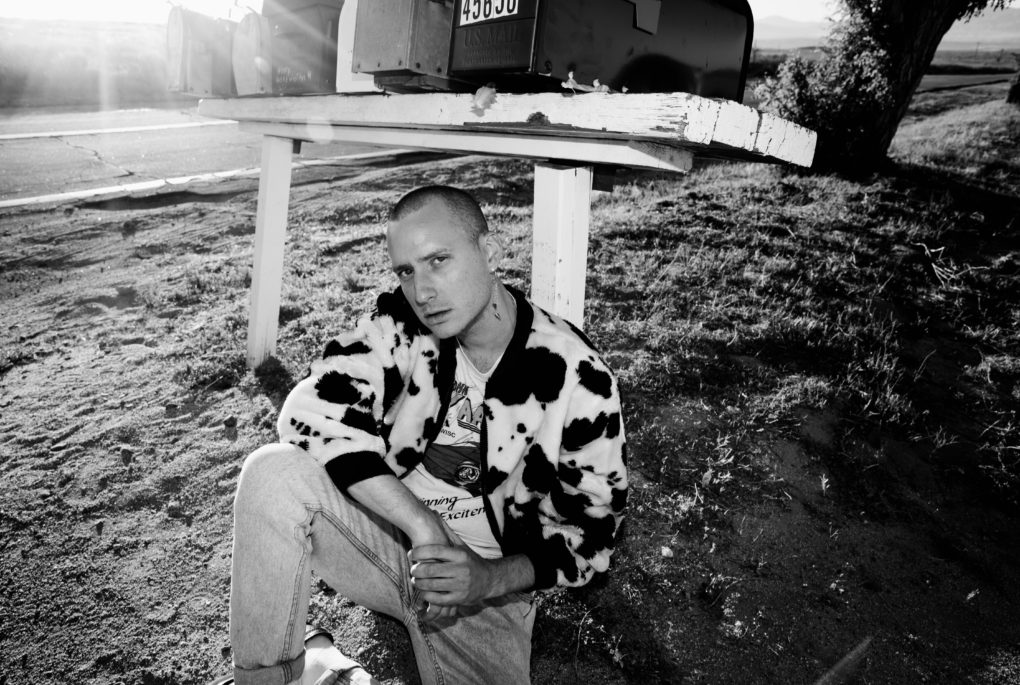
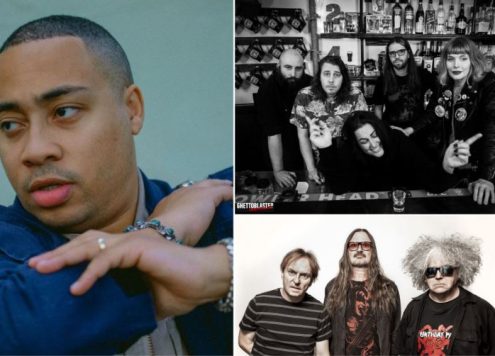
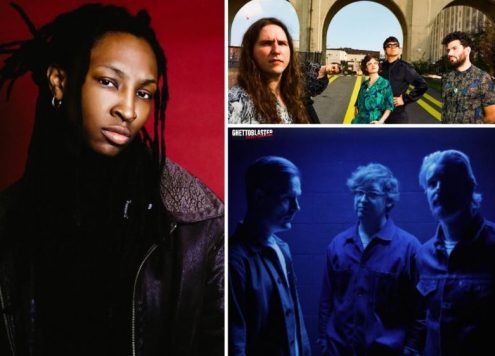
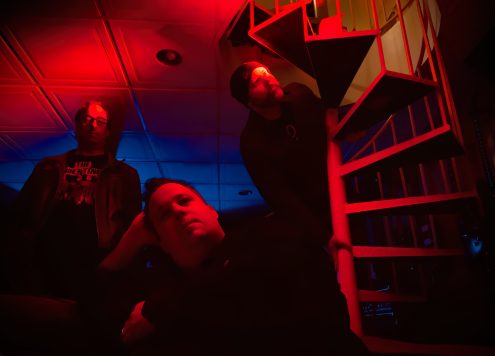

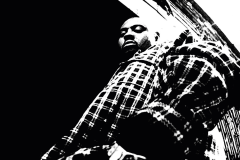
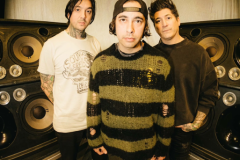
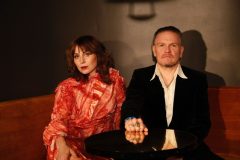
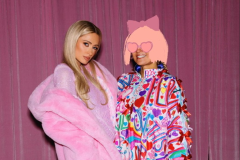

Social Media